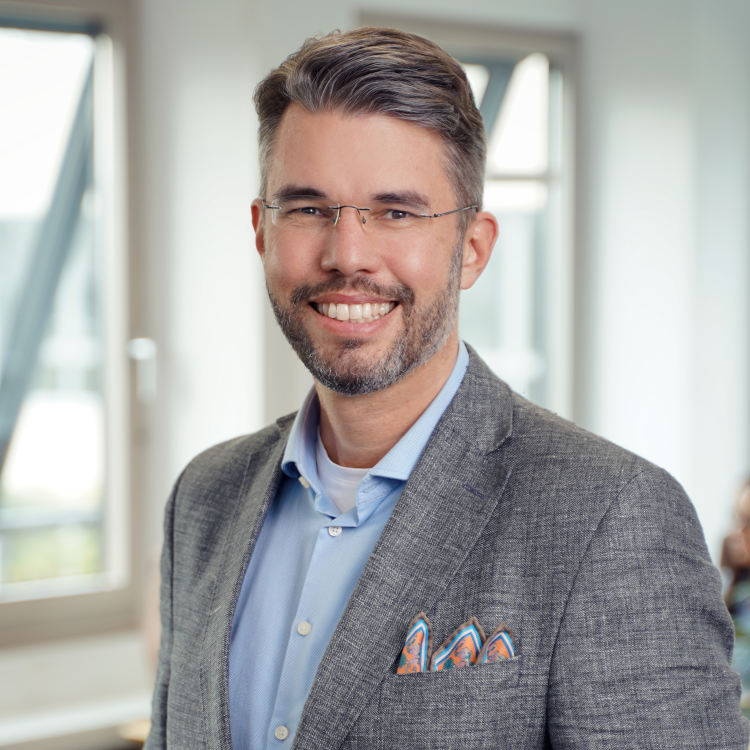
Founder & Managing Director
20 Dezember 2018
On trust in an era of information overflow and fake news.
by Axel Löber, Nicole Mommsen and Frank Sielaff
In 1798, amidst the struggle to found a nation, James Madison wrote on the power of information:
“Knowledge will forever govern ignorance. And a people who mean to be their own governors must arm themselves with the power knowledge gives. A popular government without popular information or the means of acquiring it, is but a prologue to a farce, or a tragedy, or perhaps both.”
Fast forward some 220 years later, we know more about basically everything than ever before. Brands and individuals are constantly feeding the beast by producing and sharing overwhelming amounts of content every second. Even the most secretive institutions have learnt that keeping a low profile isn’t an option anymore.
Unfortunately, we must acknowledge that this proliferation of information hasn’t necessarily made our democracies any stronger. In times of fake news – or the mere notion of it – trust in governments and organizations has drifted into distrust territory. According to the 2018 Edelman Trust Barometer the media are, for the first time, the least-trusted global institution.
We trust who (or what) we know or can relate to. Trust is inextricably linked with identity. Essentially, it is a question of belonging, something social psychology outlines as in-group favoritism as opposed to outgroup derogation. Describing our fractioning society in his book The Road to Somewhere, David Goodhart proposes the idea of somewheres (people with strong Heimat roots who feel distressed by the rapid changes of our time) and anywheres (the adaptable globalists). Could it be that these conflicting philosophies of life are leading to the loss of trust we are witnessing?
Most communicators would call themselves anywheres par excellence. And this might be part of the problem. We have invested heavily in the professionalization of our profession over the past decades. Today, thanks to technology, we have profound knowledge about the needs and wants of our stakeholders – and yet we have lost proximity to them. We send polished messages instead of listening to our stakeholders and being credible and conversational.
Has our déformation professionnelle finally struck back?
In our age of volatility, uncertainty, complexity and ambiguity – VUCA – we need to apply a new skill set. A skill set that the three of us would refer to as VUCA literacy; a combination of information, media and technology literacy. Only that skill set, which starts with an according mindset, will allow us to bridge the gap between the somewheres and the anywheres. And let’s not fool ourselves: that’s a pretty demanding task.
Just a few centuries ago, people created their world view by listening to oral stories. Then, books and newspapers with their large quantity of written (con)text provided a somewhat coherent stream of consciousness. Today, we are exposed to a meteorite shower of content fragments from a multitude of sources. This creates the intellectual challenge of being a sophisticated editor of one’s own reality.
VUCA literacy comes down to the evaluation and contextualization of information, using advanced technologies to cope with today’s dynamic media landscape. Putting complex topics into perspective even if there is no clear picture could thus emerge as one of the main deliverables of communicators and marketers today and tomorrow. The rest of our current tasks might be disrupted by Mr. Robot anyway.
If it’s true what Madison wrote more than two centuries ago and what John Naisbitt described in his book Megatrends in 1982 – namely that “the new source of power is not money in the hands of a few, but information in the hands of many” – then we may need a new deal for communications. Once we have acquired a decent level of VUCA literacy ourselves, our profession may be able to help foster VUCA literacy on all societal levels.
Given what we’ve discussed in our previous three articles, we feel like more than ever we as communicators have a tremendous opportunity but also responsibility to shape the future of our profession. The one thing we need to decide: shall it be a Star Wars or a Star Trekfuture? Do we fear technological change as concomitant of the dark side of the power, or do we want to embrace the new and unknown to boldly go where no communicator has gone before?
We’ve made our decision. What’s yours?
#ChangingComms




